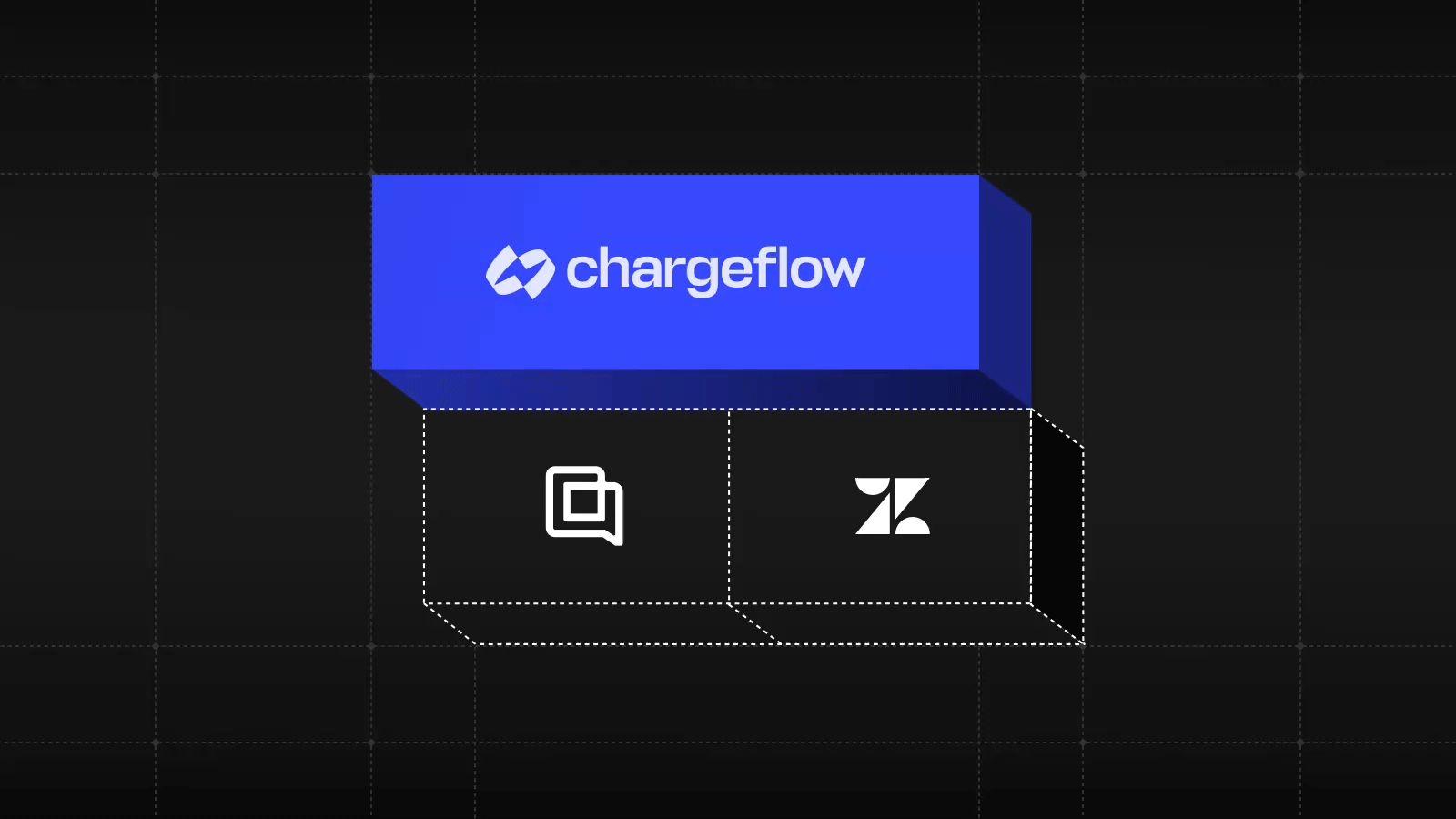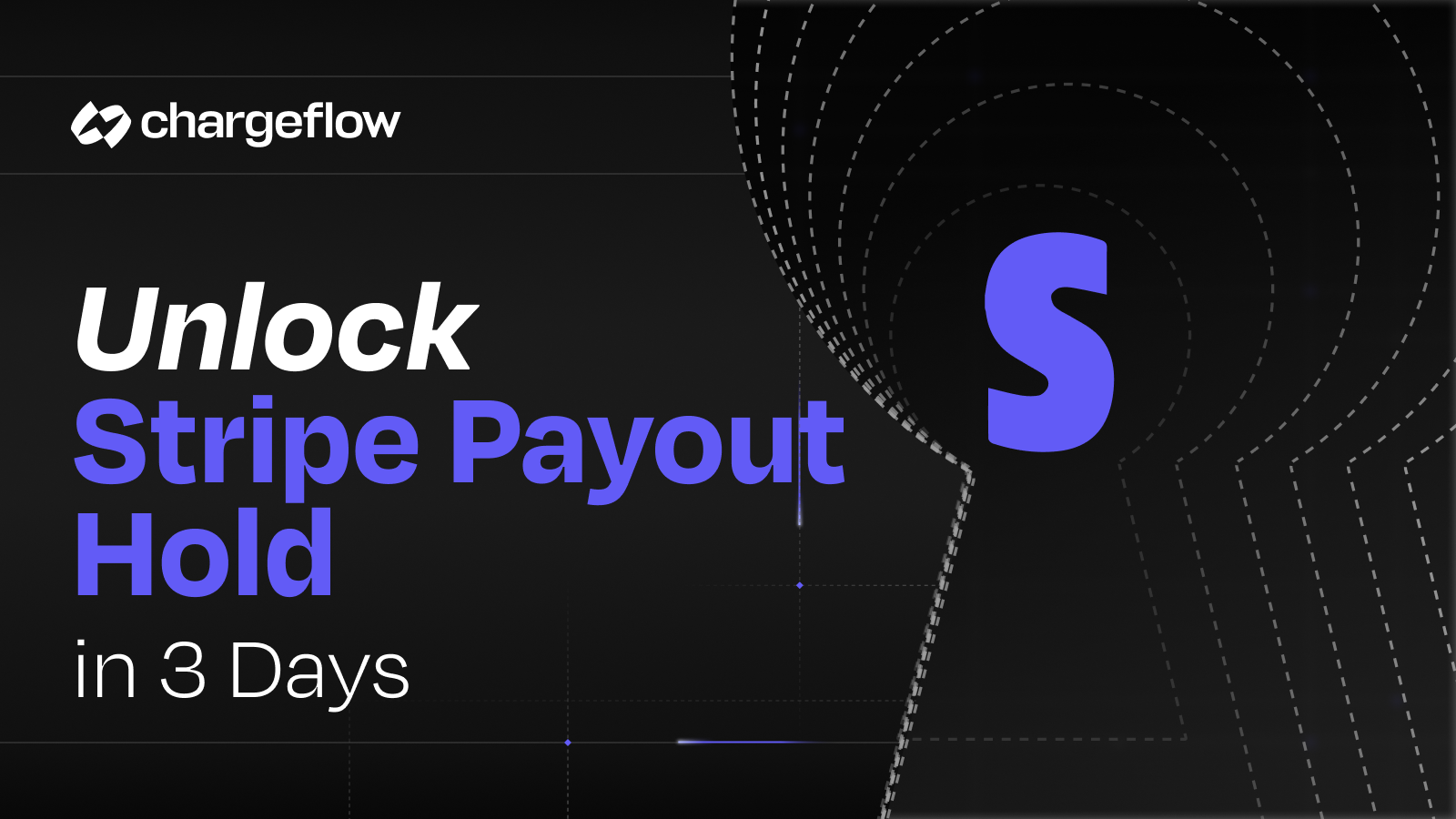High-Risk Merchant Account – Everything You Need to Know

Chargebacks?
No longer your problem.
Recover 4x more chargebacks and prevent up to 90% of incoming ones, powered by AI and a global network of 15,000 merchants.
A high-risk merchant account is a service that processors offer so that entities susceptible to excessive chargebacks or fraud can accept card payments.
TL;DR: A high-risk merchant account is a service that processors offer so that entities in fraud or chargeback-prone industries can accept card payments. If a business is at a higher risk of fraud or chargebacks or falls into specific sectors, such as subscription eCommerce, it must obtain a high-risk merchant account to accept card payments. High-risk merchant accounts attract more stringent conditionalities than regular merchant accounts and are more expensive to manage.
Twitter was recently on fire following a Tweet alleging Stripe unjustly shut down a small business that had just hit $60,000 MRR. The tweet quickly received 3.7 million impressions and thousands of likes, causing a Stripe employee to escalate the issue to their management.
The Stripe employee said their team investigated and determined the retailer operates a high-risk merchant account. And their chargeback rate exceeded the accepted minimum, causing the company to shut down their account.
The question is:
What is a high-risk merchant account?
What is the basis for classifying a high-risk merchant account?
Continue reading for all the details on high-risk merchant accounts and processing, including the extra costs and obstacles high-risk merchants encounter. You'll discover why high-risk merchants pay more for payment processing. And we'll suggest what to look for in a high-risk merchant account service provider, plus how to fight chargebacks as a high-risk merchant.
What is a High-Risk Merchant Account?
A high-risk merchant account is a service that Payment Service Providers (PSPs) offer so that entities in fraud or chargeback-prone industries can accept card payments. High-risk merchant accounts attract more stringent conditionalities than regular merchant accounts and are more expensive to manage.
Per standard industry practice, payment service providers categorize businesses seeking to open new merchant accounts according to risk exposure. Depending on the perceived risk your business operations present to them, you can be classified as either a high-risk or low-risk merchant.
Sometimes, you could start operating as a low-risk merchant. But if your company becomes exposed to increased fraud and chargeback rates, you could quickly move into a high-risk merchant account category.
As noted earlier, high-risk merchants have fewer options when choosing a payment processor. Additionally, they often pay higher fees to compensate for the perceived risks and abide by more stringent contracts.
While operating a high-risk merchant account is no fun, it could be your only way to continue accepting card payments in certain instances. We’ll discuss how that plays out shortly.

On What Basis is a Merchant Account Determined to be High-Risk?
Payment processors use several factors to determine high-risk merchant accounts. And chief among those indicators is high transaction amounts, the benchmark being $20,000 or more per month, average transaction amounts of over $500, or chargeback rates.
To help you understand why your business may be labeled "high-risk,” let’s examine the standard contributing factors.
Any business that ticks yes to any of the factors below could fall into a high-risk business category.
- Is your monthly sales volume $20,000 or more?
- Do you accept multiple currencies?
- Is your average credit card transaction $500 or more?
- Do you offer recurring billing or subscription payments?
- Do you have a history of high chargeback volumes?
- Does your business sell intangible products like software solutions, digital goods, seasonal items, tickets, etc?
- Do you operate in chargeback-prone regions, i.e., outside the US, EU, CA, JPN, or AU?
- Do you have a bad credit history?
The caveat is that being considered a high-risk merchant doesn't automatically make your company less trustworthy than other entities. Instead, that categorization is a subjective expression of your PSPs' concern with the likelihood of disputes your business may face rather than its overall value.
High-Risk Merchant Account: What Verticals are High Risk?
It's worthy of note that these categorizations are often misleading. Operating in verticals historically prone to chargebacks does not mean you will have excessive chargebacks. Yet, knowing if your business falls within verticals that service providers see as high risk is wise.
Below is a non-exhaustive list of industries and businesses categorized as high-risk:
- Adult industry, entertainment, and products
- Auctions
- Bail Bonds
- Card-not present firearms
- CBD (all products, including Delta)
- Coaching, seminars, and online educational services
- Collection agencies
- Continuity/subscription offers
- Credit Repair
- Dating services and online dating
- Debt consolidation
- Debt collection
- Debt repayment (short-term lenders)
- Digital goods
- Doc prep
- E-cigarettes
- E-commerce
- Firearms
- Furniture and electronics
- Gambling
- Health supplements and nutraceuticals
- Marijuana cards, doctors, and products
- Money transmitters, MSBs, licensed lenders
- Multi-level marketing (MLM)
- Non-Fl account loading
- Outbound & subscription direct marketing
- Pawn shops
- Subscription services and companies with recurring payment plans
- Quasi cash
- Timeshare relief and exit services
- Tobacco & nicotine products
- Travel ( airlines, cruise lines, vacation planners, etc.)
- Vape & paraphernalia
With that noted, the following passage will examine the consequences of operating a high-risk merchant account.

High-Risk Merchant Account: Consequences & What to Expect from Service Providers
However you look at it, operating a high-risk merchant account comes with increased fees for card payments, higher rates for payment processing, and more stringent requirements for compliance and reporting.
Let's break that down:
Higher Processing Fees and Complicated Terms
You might find providers specializing in supporting high-risk merchants, even those other processors reject. Yet, some companies that cater to high-risk merchants have higher fees (processing fees ~1.5%, additional interchange rates, and higher chargeback fees) and require stricter contract terms.
Exploitation of Risk Status
Predatory companies take advantage of struggling merchants. Their assistance comes at exorbitant prices, often tied to contracts that are extremely difficult to get out of ... and they can even refuse to provide service. Please do your due diligence before you sign the dotted line. Even better, have an attorney review it.
Mandatory Account Reserves
Account reserves are predetermined amounts of money held as a protection mechanism for payment processors. It serves as collateral or security for your acquirer to cover any potential costs, risks, or liabilities associated with the transaction or relationship.
Below are the primary account reserve types:
- Up-front reserve: This account reserve is set aside at the beginning of a financial transaction or business relationship. It serves to ensure that sufficient funds are available to meet any future financial obligations or potential losses that may arise.
- Rolling reserve: Here, your payment processor withholds a percentage of funds for a specific period. This percentage is strategically set aside from each transaction and placed into a reserve account, with earlier transactions becoming eligible for release as time passes.
- Fixed (capped) reserve: A fixed, also called fixed percentage reserve or fixed holdback, involves setting aside a fixed percentage of funds from transactions. This withheld amount remains fixed until you meet certain predetermined conditions. Only then can the funds be released.
When searching for a high-risk merchant account, remember the quality of options available can vary greatly.

What to Look for In a High-Risk Merchant Account Payment Processor
Always look for a high-risk merchant account payment processor that aligns with your business model. These entities must provide the support and services you need to facilitate secure and efficient payment processing.
Below are vital factors to look for in a high-risk merchant account service provider:
#1: Experience with High-Risk Industries
Ensure that the payment processor has experience working with businesses in high-risk verticals. They must deeply understand your industry's specific challenges and compliance requirements.
#2: Risk Management and Fraud Prevention
Look for a payment processor with robust risk management tools and fraud prevention measures. Look for features like real-time transaction monitoring, chargeback mitigation services, address verification systems, and 3D secure authentication.
#3: Multiple Payment Options
Remaining competitive in today's global marketplace requires that your payment processor supports various payment options. With that, you can quickly accommodate diverse customer preferences like cards, e-wallets, ACH payments, and alternative payment methods.
#4: Competitive Fee Structure
Look at the fine print and understand the payment processor's pricing model and fee structure. As noted earlier, high-risk businesses generally incur higher processing fees due to increased risk factors. Compare rates and fees across different providers to ensure you are getting a competitive deal.
#5: KYC & Regulatory Compliance
High-risk industries often have specific compliance requirements, such as age verification for tobacco or alcohol sales or Know Your Customer regulations. Choose a payment processor that understands and can assist you in meeting these compliance obligations seamlessly.
#6: Excellent Customer Support
Look for a payment processor that offers reliable customer support. They should be responsive and knowledgeable in addressing technical issues, providing assistance with integration, and resolving payment-related inquiries or concerns.
#7: Scalability and Growth Prospects
Every business can grow. So, look for a payment processor to support your business's growth prospects. They should be able to handle high transaction volumes and provide additional services or features as your business expands.
#8: Reputation and Reviews
Do thorough research on the payment processor's reputation in the industry. Look for reviews and testimonials from other high-risk merchants to gauge their experiences and satisfaction levels.
#9: Integration and Compatibility
Ensure the payment processor integrates smoothly with your existing infrastructure or point-of-sale system. Compatibility and ease of integration can save time and effort during the setup process.

How to Fight Chargebacks as a High-Risk Merchant
As a recap of what we've learned, we understand that risk is inherent to all businesses. Accepting payments comes with risks, from payment fraud to eCommerce chargebacks.
Yet, some entities face these risks more than others because of the nature of their businesses or their region.
Electronic payment processors – companies intermediating between businesses, financial institutions, and card brands – know that. And they classify these retailers exposed to unusually higher risk doses as "high-risk merchants."
Having this “high-risk” label on your company has significant consequences, such as:
- Some payment processors won't want to work with you.
- Your cost of payment processing will be unusually high.
- Your service provider will withhold funds from your merchant account to cushion chargeback risks.
If you're facing high chargeback volumes or want to reduce your chargeback ratio to avoid increased expenses and penalties, I invite you to try Chargeflow today.
Chargeflow helps eCommerce merchants recover chargebacks on autopilot and prevent payment fraud.
Using big data and deep integration with your business, Chargeflow produces the most comprehensive chargeback evidence in the world, custom-tailored to your store, and sends it on your behalf. Get more details on how to get started right away.

Chargebacks?
No longer your problem.
Recover 4x more chargebacks and prevent up to 90% of incoming ones, powered by AI and a global network of 15,000 merchants.






























.png)








